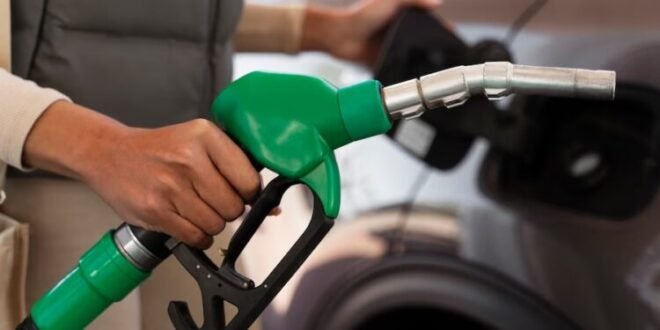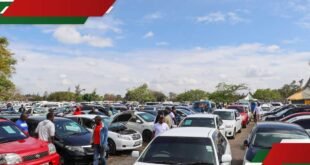Record Drop in Nigeria’s Petrol Imports as Dangote Refinery Transforms the Market
Nigeria’s import of Premium Motor Spirit, commonly known as petrol, has seen a significant decline in June, marking a historic low. This drop is largely attributed to the increased production capacity of the 650,000 barrels-per-day Dangote Petroleum Refinery. The refinery’s output has significantly reduced the demand for imported petrol from traditional suppliers such as the European Union, the United Kingdom, and Norway.
According to an Argus report citing Kpler tracking data, the surge in domestic refining has led to a sharp decrease in petrol shipments from Europe to Nigeria. June recorded the lowest level of petrol imports since tracking began, signaling a major shift in Nigeria’s fuel import landscape.
The decline in petrol imports by Nigerian oil marketers has also affected overall West African imports of European gasoline, which fell to a four-month low of 926,000 metric tonnes. This represents a 20% year-on-year decrease from the previous month. Nigeria, once the largest importer of gasoline in the region, has now slipped behind Togo as the Dangote refinery reaches its highest monthly production rate since becoming operational.
A Shift in Fuel Trade Dynamics
June arrivals into Nigeria from Europe dropped by 56% compared to the previous month, reaching 231,000 metric tonnes—the lowest recorded by Kpler. Additionally, Nigeria imported 28,000 metric tonnes from offshore Lome and 12,000 metric tonnes from Houston, totaling 271,000 metric tonnes or approximately 363,411,000 litres. Meanwhile, the Dangote refinery exported a record 252,000 metric tonnes of petrol last month.
The refinery has been exporting products to several countries, including Oman, Malaysia, and the Ivory Coast. Specific shipments include 90,000 metric tonnes to Oman, 89,000 metric tonnes to Malaysia, and 35,000 metric tonnes to the Ivory Coast, with additional cargo still en route.
This development suggests that Nigeria may be approaching a turning point in its fuel trade balance. According to Dangote Group Executive Director Edwin Devakumar, the refinery has “extra plant capacity to produce gasoline,” and recent purchases of naphtha indicate efforts to boost production further.
Transitioning to Local Crude Supply
Dangote’s refinery is expected to rely entirely on Nigerian crude oil by the end of 2025, potentially displacing hundreds of thousands of barrels of imported crude daily. This transition is supported by improved relations between the refinery, local oil traders, and the government, ensuring a steady supply of Nigerian crude.
Currently, the refinery sources about 53% of its crude supply from local producers and 47% from the U.S. In June, it processed 550,000 barrels of crude per day. Dangote was scheduled to receive five cargoes from the Nigerian National Petroleum Company Limited in July, matching the same amount expected in August. Each shipment holds nearly a million barrels of crude.
Recent reports indicate that the Nigerian government sold crude oil valued at N219.38 billion to the Dangote Petroleum Refinery in the first four months of 2025. Documents from the Federation Account Allocation Committee meetings showed nine cargoes delivered to the refinery, totaling 1,901,850 barrels sourced from the Okwuibome field and the Nigerian Agip Exploration.
Despite these positive developments, there remains a need for a significant increase in local crude supply. The refinery’s reliance on foreign crude highlights the importance of expanding domestic production.
Economic Impacts and Price Adjustments
The fall in Nigerian demand for gasoline imports, combined with weaker-than-expected US consumption, has raised concerns over outlet options for European gasoline this summer. A European trader told Argus that Europe remains a major net exporter of the product.
Benchmark non-oxy gasoline barge cracks to front-month Ice Brent crude futures averaged $14.73 per barrel between 1–4 July, showing a slight increase from the same period in 2024.
In response to market conditions, the Dangote Petroleum Refinery has reduced its ex-depot petrol price to N820 per litre. This marks the lowest rate since March 14, when petrol briefly sold at N815 per litre. The reduction, confirmed by marketers in Lagos and Warri, represents a 2.15% decline and is the refinery’s eleventh price adjustment in 2025.
 Info Malang Raya Its All About World News
Info Malang Raya Its All About World News




